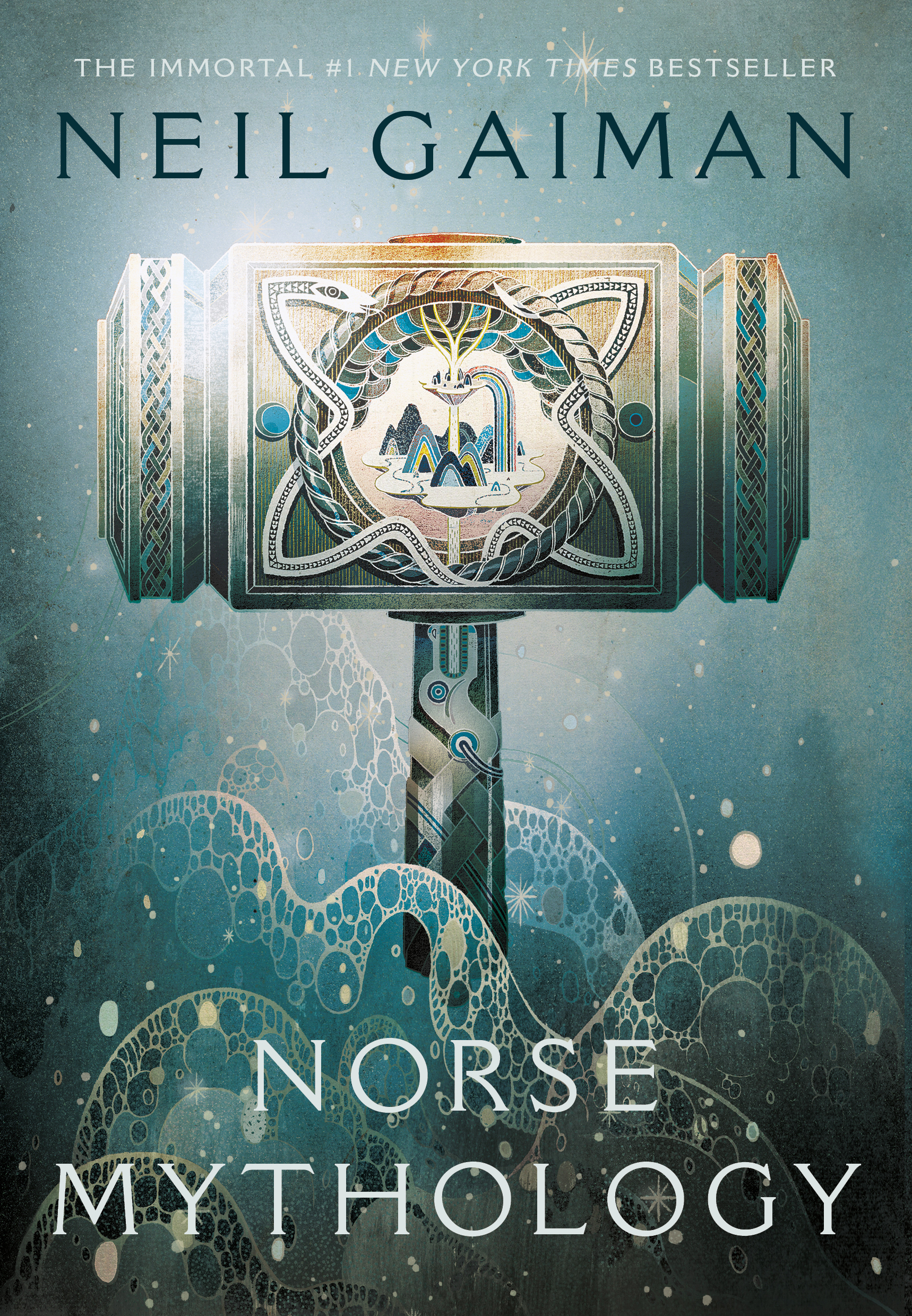What do you think?
Rate this book


301 pages, Paperback
First published February 7, 2017



“The Norse myths are the myths of a chilly place, with long, long winter nights and endless summer days, myths of a people who did not entirely trust or even like their gods, although they respected and feared them.”

“Behind the depth, before the height
Surrounded by the serpent Jörmundgand
World of man in the middle
Of heat and ice built by the Ymer brow”
“Frøya
Blue her eyes
Gold of hair
A maiden so fair”
“I watched as he shouted
To the giants who died that day
He held up his hammer high
And called to Odin for a sign”
“Honour your brother's name, unarmed or blind
Let me aid you in your aim, don't stay behind
Let's maim immortality and death to a deity”
“Ragnarök
See the earth go up in flames
Ragnarök
The great serpent writhes in rage
The doom of gods now hath come
The fall of the sun
The gates of Hel devour the dead
At the twilight of the gods”
“Asgard's always been my home
But I'm of different blood
I will overthrow the throne
Deceiver!
Deceiver of the gods!”
“Thor! Odin's son
Protector of mankind
Ride to meet your fate
Your destiny awaits”
Many gods and goddesses are named in Norse mythology. You will meet quite a few of them in these pages. Most of the stories we have, however, concern two gods, Odin and his son Thor, and Odin's blood brother, a giant's son called Loki, who lives with the Aesir in Asgard.

There is no glory without dangerBefore beginning the review, I clear out that I read this book as a fictional work not as the work which I believe can be/is true. I am telling you because this book was getting little serious about narrating these myths. Like trying to make us believe these are real facts.
When something goes wrong, the first thing I always think is, it is Loki’s fault. It saves a lot of time -- Thor
“Because,” said Thor, “when something goes wrong, the first thing I always think is, it is Loki’s fault. It saves a lot of time.”This is my first comprehensive book on Norse Mythology and I was not a huge fan. Everything seems too disconnected. The Gods actions, their reactions, their punishments all don't seem to fit. There wasn't fluidity between one legend and the next - it felt like a bunch of disjointed vignettes featuring the same characters.
I’m not happy about any of this,” said Thor. “I’m going to kill somebody soon, just to relieve the tension. You’ll see.There's such a steep curve for keeping track of the people and things. I kept having to rewind my audiobook to figure out what I missed. Everything, right down to the cauldrons and the hammers have difficult names and sometimes multiple names. However, listening to the audiobook did make it slightly easier to handle all of those names.
Of course it was Loki. It's always Loki.Audiobook Comments